Victor Hugo
Victor Hugo was born on 26 February 1802 in Besançon and died on 22 May 1885 in Paris. He is one of France’s most famous writers. A brilliant poet, playwright and novelist, but also a politician, journalist, designer and even interior decorator, Victor Hugo made a significant impact on the literary, artistic and political life of his time. Two centuries later, his prolific and varied work is still read and studied around the world, and in the collective imagination Victor Hugo is still seen as the embodiment of the socially engaged artist.
1802 – 1804: Victor Hugo’s early childhood under the Consulate
Victor-Marie Hugo was born in Besançon on “the 7th of the month of Ventôse in the year 10”, according to the Republican calendar in force in 1802. He was the third son of Joseph-Léopold-Sigisbert Hugo and Sophie Hugo (born Trébuchet), after Abel, born in 1798, and Eugène born in 1800. Léopold Hugo, Victor Hugo’s father, was a Republican soldier in the French Revolution. He was a major in the Besançon garrison from 1801 to 1802, and then transferred to Marseille and Bastia. Victor Hugo only stayed in Besançon for around six weeks.
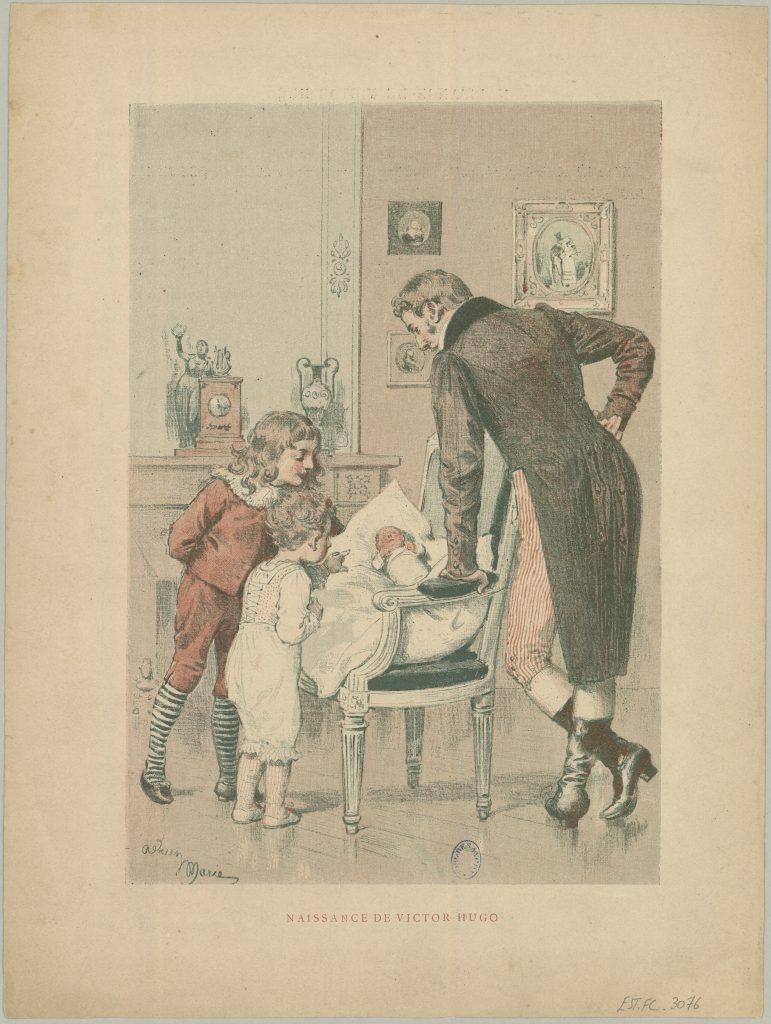
1804 – 1814: Victor Hugo’s childhood during the First Empire
Léopold Hugo joined Joseph Bonaparte, the brother of Napoleon I, in Naples in 1806 then in Spain in 1808. He became a colonel and then general of the Empire. His wife and children followed him, and later returned to Paris. They settled in a former convent, the Feuillantines, where Sophie Trébuchet hid Victor de Lahorie, Victor Hugo’s godfather, who would be executed in October 1812 for conspiring against Emperor Napoleon. In 1811, they joined Léopold Hugo in Madrid for a year. Victor Hugo’s memories of Spain would have a significant impact on his work. He and his brother Eugène attended boarding school at the Collège des Nobles in Madrid. In March 1812, Victor’s parents separated: he returned to Paris to live with his mother and brother Eugène.
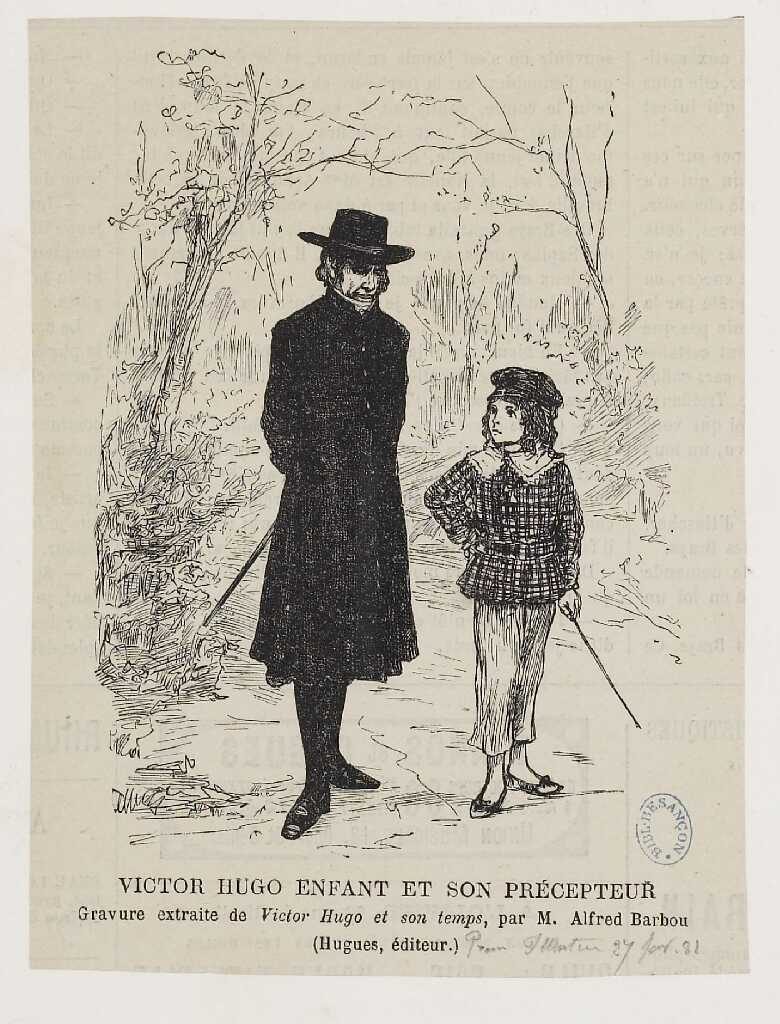
1814 – 1830: Victor Hugo’s life as a young man under the Restoration
Victor and Eugène Hugo were placed in a boarding school in Paris by their father, and then attended the Lycée Louis-le-Grand secondary school. Victor Hugo was a brilliant student and began to write poetry. In 1818, his parents were granted a divorce. Victor and Eugène registered to study law and returned to live with their mother and brother Abel. In 1819, Victor Hugo was awarded the Lys d’Or at the Académie des Jeux Floraux in Toulouse. He then published his first Odes and obtained a pension from King Louis XVIII. In 1821, his mother Sophie died, and in 1822 he married Adèle Foucher, his childhood sweetheart. The mental health of his brother Eugene deteriorated and he was detained in a psychiatric hospital. Adèle and Victor’s five children were born between 1823 and 1830: Léopold (who died at 3 months), Léopoldine, Charles, François-Victor and Adèle. The first performance of his romantic play Hernani on 25 February 1830 at the Comédie Française led to “the battle of Hernani” and tore up the rules of classical theatre, establishing Victor Hugo as the leader of the French romantic movement.
Other works:
- Poetry: New Odes (1824), Odes and Ballads (1826), Orientalia (1829)
- Novels: Bug-Jargal (1818), Hans of Iceland (1823), The Last Day of a Condemned Man (1829)
- Plays: Cromwell (1827), Amy Robsart (1828)
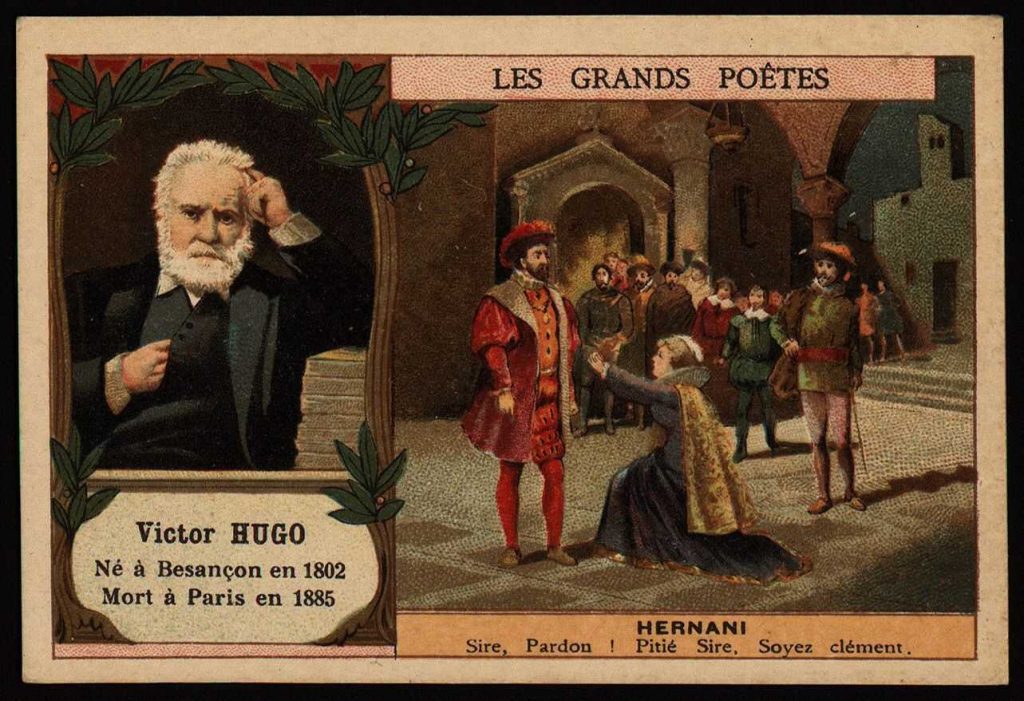
1830 – 1848: Victor Hugo’s literary success under the July Monarchy
Victor Hugo wrote prolifically during this time: in 1831 his novel The Hunchback of Notre-Dame was an immediate success. He also published many poems, and some of his plays were censored because of their criticism of the monarchy, for example, The King’s Fool in 1832. In 1833, he met the actress Juliette Drouet, who became his mistress and, along with his wife Adèle, would be the great love of his life. Following the accidental death of his beloved daughter Léopoldine, who drowned at the age of 19 in the Seine in 1843, Victor Hugo started to write less and turned to politics. He supported the monarchy and was appointed a peer of France by Louis-Philippe. He sat in the Chamber of Peers from April 1843 to February 1848 on the conservative side.
Other works:
- Poetry: Autumn Leaves (1831), Songs of the Half Light (1835), Inner Voices (1837), Sunlight and Shadows (1840)
- Novels: Claude Gueux (1834)
- Plays: Marion Delorme (1831), Lucrezia Borgia (1833), Marie Tudor (1833), Angelo, Tyrant of Padua (1835), Ruy Blas (1838), Les Burgraves (1843)
- Travel writing: The Rhine (1842)
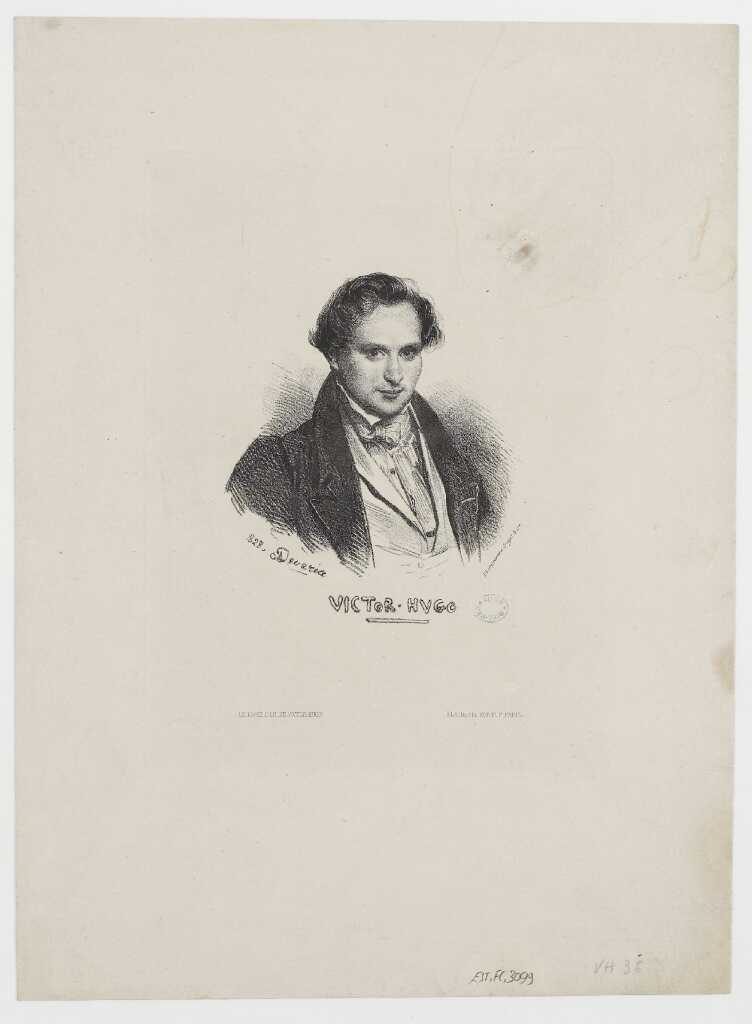
1848 – 1851: Victor Hugo’s literary success under the July Monarchy
Popular revolts put an end to the reign of King Louis-Philippe in February 1848. After some hesitation, Victor Hugo supported the Republic and was elected to the Constituent Assembly in June 1848, and then to the National Assembly as a representative of the Seine department in May 1849. The barricades of 1848 would inspire the street fights in Les Misérables, although the events recounted in the novel are set in the riots of 1832. Victor Hugo delivered several famous speeches to the Assembly: his speech for freedom of the press on 11 September 1848, for the abolition of the death penalty on 15 September 1848, and on poverty on 9 July 1849.
- “Freedom of the press alongside universal suffrage, this is the thought of all enlightening the government of all. To attack one is to attack the other.”
- “I am voting for the pure, simple and definitive abolition of the death penalty.”
- “I am not one of those who imagine that you can abolish suffering in this world; suffering is a divine law; but I do firmly believe and declare that you can abolish poverty.”
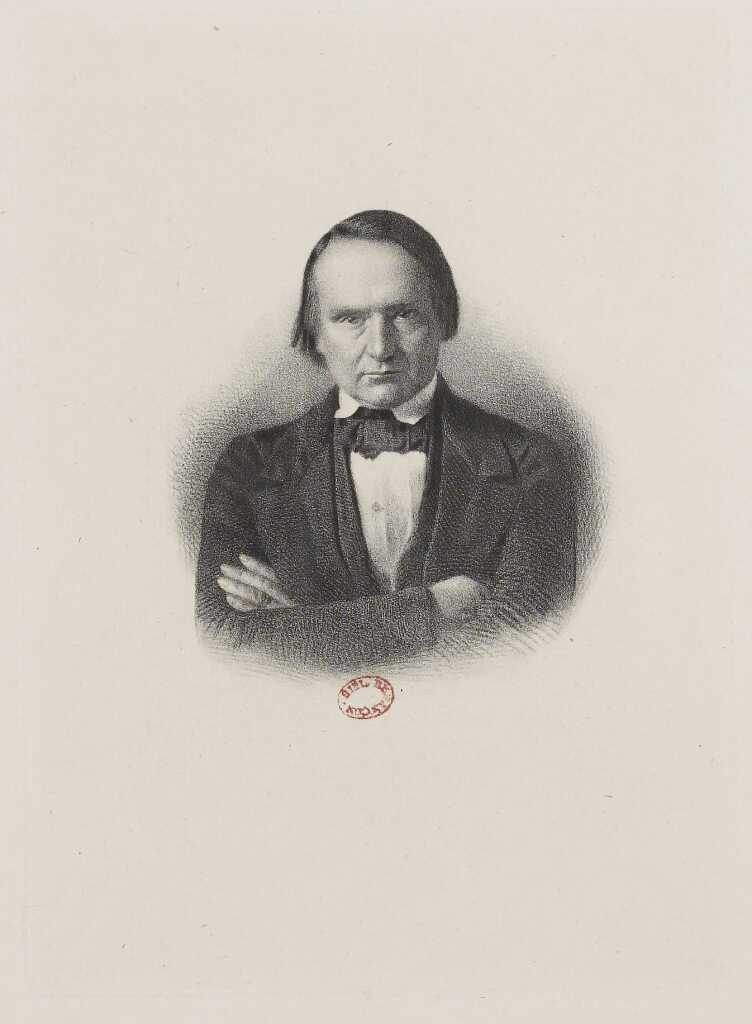
1851 – 1870: Victor Hugo’s exile during the Second Empire
On 2 December 1851, President Louis-Napoleon Bonaparte, the nephew of Napoleon I, carried out a coup d’état with the help of the army and established an imperial regime by taking the name of Napoleon III. Opposing the coup and calling for resistance, Victor Hugo was threatened with arrest. He fled Paris and took refuge in Brussels. The banished Victor Hugo then went into exile with his family for 19 years on the Channel Islands of Jersey and then Guernsey, refusing the amnesty granted by Napoleon III in 1859. His collection of poems published in 1853, The Empire in the Pillory, was a satirical tract against the Second Empire, and circulated secretly in France. During his exile, Victor Hugo began to write again: the success of Contemplations in 1856, a collection of poems in which he spoke in particular about the pain caused by the death of his daughter Léopoldine, allowed him to buy Hauteville House in Guernsey. It was in this house, facing the sea, that he wrote his novels Les Misérables (1862), Toilers of the Sea (1866), The Man Who Laughs (1869), the essay William Shakespeare (1864), the collection of poems The Songs of the Streets and Woods (1865), and his great epic, The Legend of the Ages (1859). His wife Adèle died in 1868. The day after the capitulation of Napoleon III, Victor Hugo returned to Paris on 5 September 1870 to cheering crowds.
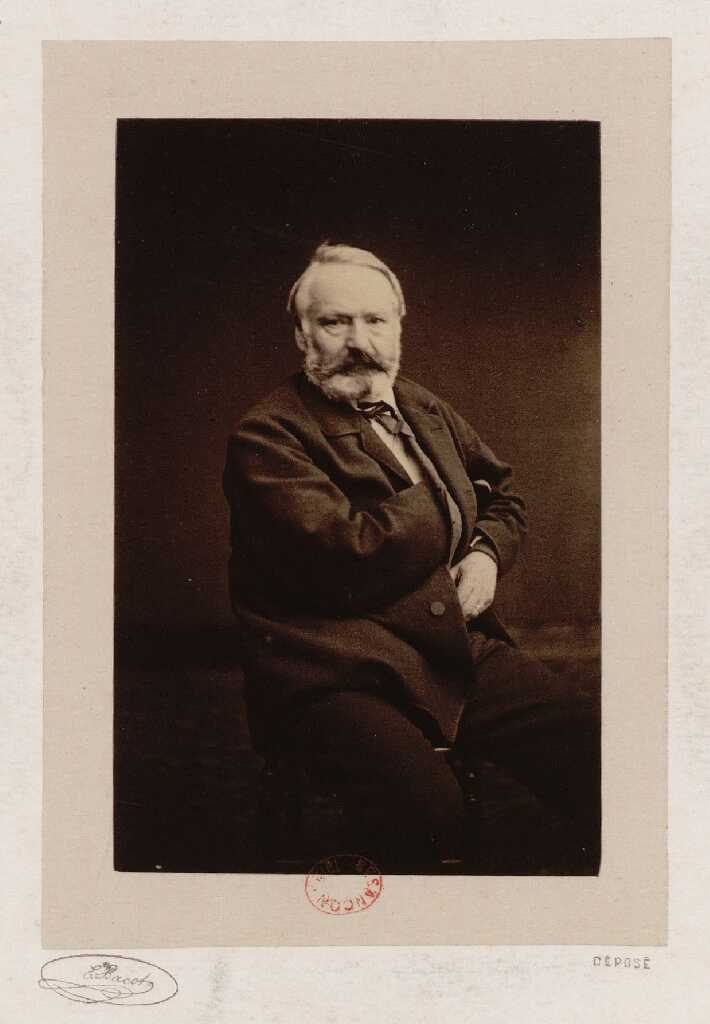
1870 – 1885: Victor Hugo’s old age under the Third Republic
Returning to Paris after his exile, Victor Hugo was in Brussels to settle the affairs of his deceased son Charles, when the Semaine Sanglante (Bloody Week) of the Commune took place in May 1871. He offered asylum to the Communards, was expelled from Belgium and spent a few months in Vianden, Luxembourg, where he wrote The Year of Horrors. His daughter Adèle was detained in a psychiatric hospital in 1872 and his son François-Victor died in 1873. His last novel, Ninety-Three, was published in 1874, and his political writings appeared in the Deeds and Words collections in 1875. His deep affection for his two grandchildren, Georges and Jeanne, inspired him to write The Art of Being a Grandfather (1877). In 1876, he was elected to the Senate, the culmination of his political and literary fame. Victor Hugo died on 22 May 1885, two years after Juliette Drouet. His funeral at the Pantheon in Paris was attended by 2 million people.
Other works:
- Poetry: The Pope (1878), The Supreme Compassion (1879), The Donkey (1880), Religions and Religion (1880), The Four Winds of the Spirit (1881), The End of Satan (1886 posthumous), God (1891 posthumous)
- Plays: Torquemada (1884), Theatre in Freedom (1886 posthumous)
- Essay: The History of a Crime (1877-1878)

For further information
A brief biography of Victor Hugo and his family tree are available on the website of the Maisons Victor Hugo de Paris-Guernesey.
The Hugo Group at Paris Diderot University brings together Victor Hugo specialists and promotes current research on the work of Victor Hugo. Jean-Marc Hovasse, scientific advisor to Maison Victor Hugo and research director at the French National Centre for Scientific Research (CNRS), has written an authoritative biography on Victor Hugo published by éditions Fayard (Tome 1 “Avant l’exil (Before Exile) 1802-1851”, Tome 2 “Pendant l’exil (During Exile) 1851-1864”).
A biographical comic strip by Bernard Swysen (Victor Hugo, Kennes Editions) illustrates the life of Victor Hugo in pictures.
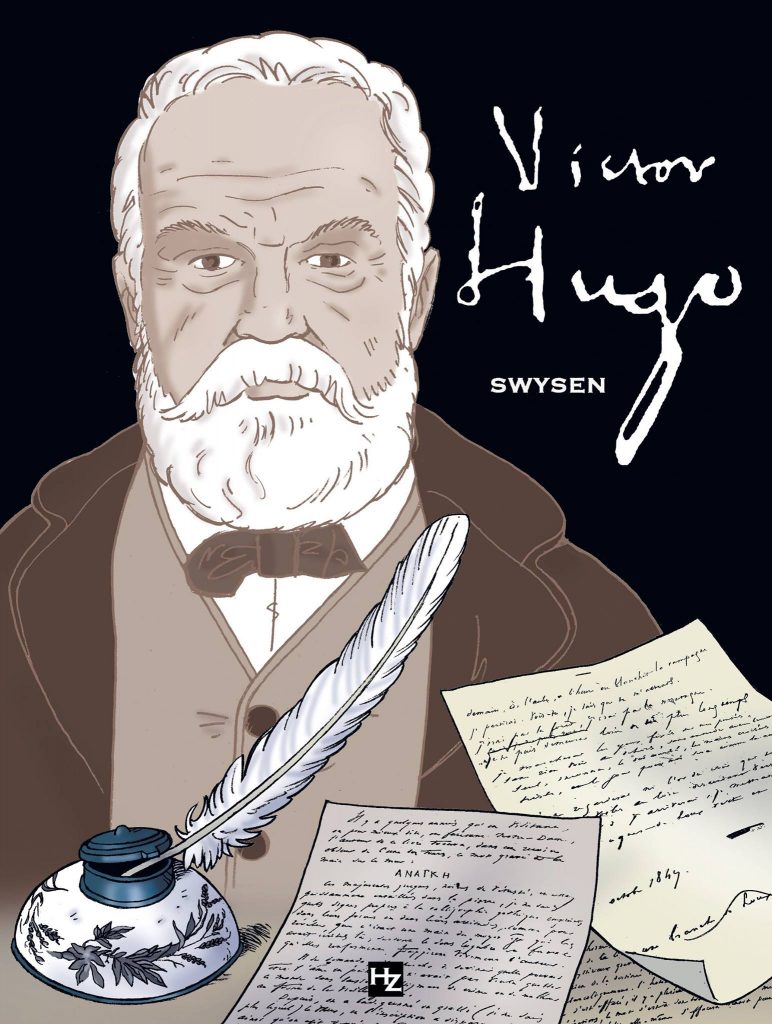
And for children aged 7 to 77:

